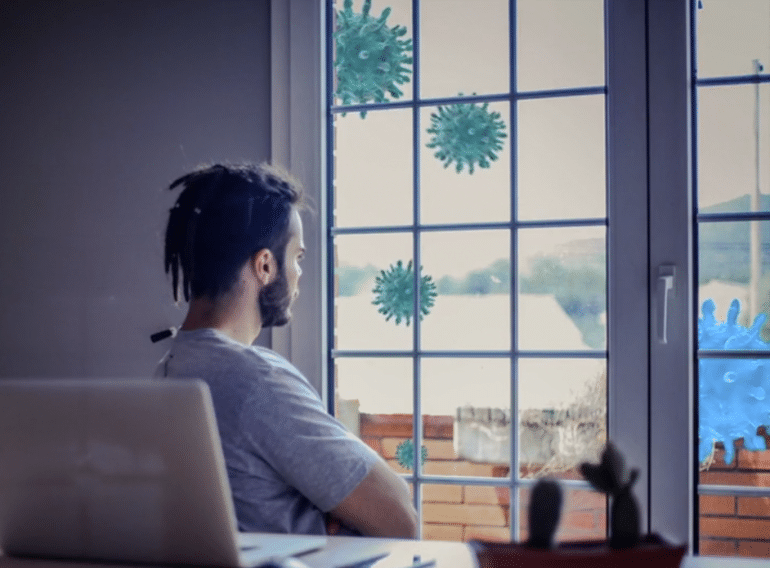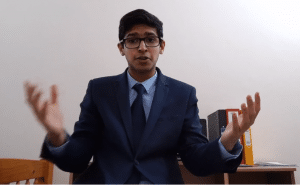
A QE team have won the Year 11 category in the Bank of England’s schools film competition with their analysis of the likely lasting effects of the pandemic on business and employment.
 Abir Mohammed, Dhruv Syam and Ansh Jassra put together a polished three-minute film featuring footage from around the world on the competition theme of The changing workplace: same spaces, new realities. The 2020 competition, entitled Bank Camera, Action, challenged entrants to explore the effects of the coronavirus pandemic on the way we work, on jobs and on the economy.
Abir Mohammed, Dhruv Syam and Ansh Jassra put together a polished three-minute film featuring footage from around the world on the competition theme of The changing workplace: same spaces, new realities. The 2020 competition, entitled Bank Camera, Action, challenged entrants to explore the effects of the coronavirus pandemic on the way we work, on jobs and on the economy.
Congratulating the boys on their success, the judges in the annual competition said they enjoyed watching the boys’ film, The Bank of QE, and were impressed by their filmmaking skills.
 QE teacher of Economics Krishna Shah said: “I am extremely proud of the three of them and delighted that all their hard work in putting the film together has been rewarded.”
QE teacher of Economics Krishna Shah said: “I am extremely proud of the three of them and delighted that all their hard work in putting the film together has been rewarded.”
All three boys took on the role of producer, with Abir also acting as editor, while Dhruv was the narrator and Abir and Ansh were both interviewed on-camera.
The film looked at the possible permanent impacts of the pandemic both on individuals and on different sectors of the economy. The boys stated, for example, that:
- Those without access to the technology needed for remote working could lose out, leading to a possible rise in inequality;
- Small firms could find themselves unable to compete with large businesses on economies of scale;
- Unlike those in “on-line service hubs”, such as London, people living in areas of the country concentrated on manufacturing could find it difficult to work from home, putting such areas at risk of mass unemployment and poverty.
 It considered the environmental benefits of reduced levels of commuting and outlined possible technological solutions to the difficulties in maintaining work-life balance that working from home often entails, such as using separate electronic devices for work and personal life and screen-time blocking apps.
It considered the environmental benefits of reduced levels of commuting and outlined possible technological solutions to the difficulties in maintaining work-life balance that working from home often entails, such as using separate electronic devices for work and personal life and screen-time blocking apps.
And Dhruv added: “New technologies have the potential to transform the future of work – things like low-latency whiteboards and faster 5G internet completely bringing back the spontaneity of the office.
 “Ultimately, the question is not whether remote working is here to stay, but to what extent.
“Ultimately, the question is not whether remote working is here to stay, but to what extent.
“Most firms will choose a mixture of both [office working and working from home], but even small shifts in global work patterns will have a profound effect on all our lives. Let’s see what the future holds,” Dhruv concluded.
They won £300 for the School to spend on filmmaking equipment, as well as a £25 Amazon eGift voucher each and a certificate signed by Bank of England Governor Andrew Bailey.
- The film may be viewed on the Bank of England’s competition web page here.
